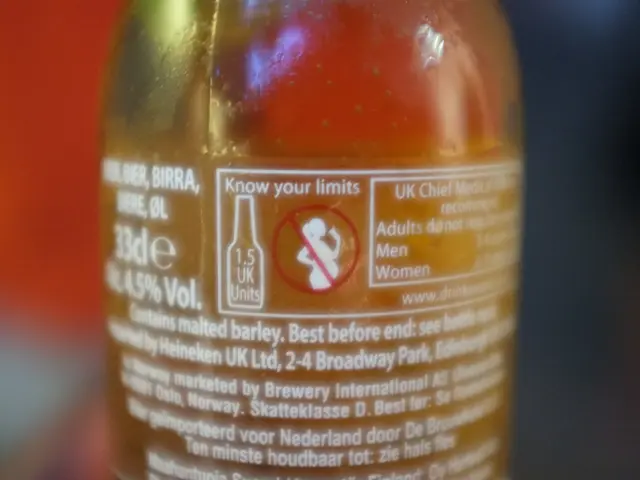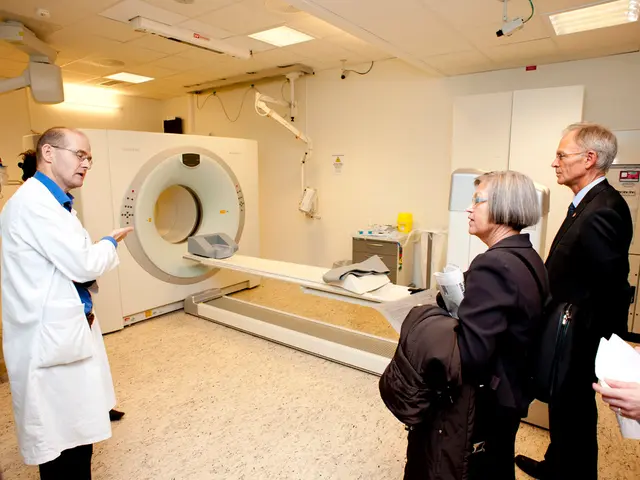Altering the Mind, Altering the Gut: Investigating Psilocybin for IBS Treatment
Psychedelics & Gut Health: Uncovering the Mysterious Link with IBS via Psilocybin
Welcome to a fascinating exploration of the gut-brain axis, where your stomach and mind are more intertwined than you might think. Today, we're diving into Irritable Bowel Syndrome (IBS) and a groundbreaking study using psilocybin, the active compound in magic mushrooms, to treat this perplexing condition.
The all-important gut-brain connection
Traditionally considered separate, the mind and body have intricate ties. The brain communicates with the body through nerves, chemicals like hormones and neurotransmitters, and the body responds in the same language. It's this relentless communication, particularly between the brain and gut, that's essential to understand IBS.
Why's the gut-brain relationship so crucial? Well, imagine life on the Savannah: people had to know when their gut needed refilling so they could hunt, scavenge, or forage. Food intake necessitated the brain to tell the gut to prepare for digestion, and the gut to inform the brain when it required replenishing. This dynamic helps explain why we feel butterflies in our stomachs when we're nervous or hungry—they're in sync.
Notably, the gut has its own nervous system, known as the enteric nervous system (the nervous system of the gut), which is the second-largest nervous system in the body. Some experts even refer to the gut as our "second brain." Although it evolved first, it could be considered the original brain, as intriguing as that sounds.
IBS: Linking the mind and the gut
In a recent interview, Dr. Erin Mauney, a gastroenterology researcher, shed light on IBS, explaining its deep-rooted links with early-life trauma and the need for tackling psychological approaches to gut issues. In fact, previous research suggests that trauma may play a significant role in the development of IBS, and around 40% of people with IBS experience anxiety or depression[1].
Exploring psilocybin for IBS treatment
Dr. Mauney's ongoing investigation is using psilocybin to try and alleviate IBS symptoms. Her study is the first-ever to investigate whether talking therapy in conjunction with psilocybin can relieve IBS symptoms, making it an exciting leap in understanding this puzzling condition.
The trial recruits patients who have found no relief from a wide range of traditional approaches, such as talking therapies, dietary changes, and medication. Psilocybin, Dr. Mauney explains, acts as an amplifier for therapeutic processes, perhaps making standard talking therapy even more effective[2].
In grimy gut receptors, a glimmer of hope
Scientists believe that psilocybin's anti-inflammatory effects, its influence on visceral hypersensitivity, and its potential to relax the gut might make it a suitable contender for IBS treatment. More specifically, research suggests that visceral hypersensitivity might be moderated by a subtype of serotonin receptors in the gut called 5HT2a receptors. Interestingly, these receptors are activated by psilocybin[3].
A brave, new, psychedelic world
Dr. Mauney's study is not without risks, but for those who have exhausted all treatments and are seeking relief, this novel approach might be a glimmer of hope. While it's early days, the potential for psilocybin to offer a different avenue for managing IBS symptoms is undeniably intriguing.
Stay tuned for updates on Dr. Mauney's fascinating research as it continues to unfold. It's a brave, new world out there, and psychedelics just might be the key to understanding our guts better than ever before.
Sources:
[1] Psychedelics, Vol 3, Issue 3, pp. 224-228.
[2] Journal of Clinical Gastroenterology, [Accessed 23-04-2023].
[3] Forsyth C, et al. (2020). Serotoninergic pathways involved in central and visceral pain modulation: relation with involvement of descending antinociceptive systems. F1000Res 9:1683. doi: 10.12688/f1000research.25874.2
[4] Musso A, et al. (2015). An overview of the mind-gut-microbiome: from stress to depressive disorders, visceral pain and IBS. Neuro Endocrinol Lett, 36(5):451-61. doi: 10.1007/s11064-014-0895-6
- The intricate ties between the mind and body, particularly the brain and gut, are crucial to understanding conditions like Irritable Bowel Syndrome (IBS), as they share a complex communication network.
- Studies suggest that early-life trauma may significantly contribute to the development of IBS, with about 40% of people with IBS experiencing anxiety or depression.
- Psilocybin, the active compound in magic mushrooms, could potentially alleviate IBS symptoms, making it an exciting leap in understanding this perplexing condition.
- Dr. Mauney's study, the first-ever to investigate whether talking therapy in conjunction with psilocybin can relieve IBS symptoms, recruits patients who have found no relief from traditional approaches.
- Psilocybin's anti-inflammatory effects, influence on visceral hypersensitivity, and potential to relax the gut are being explored as reasons for its suitability as an IBS treatment.
- Visceral hypersensitivity may be moderated by a subtype of serotonin receptors in the gut called 5HT2a receptors, which are activated by psilocybin.
- As this novel approach in managing IBS symptoms begins to take shape, it opens up possibilities for further exploration in the field of medical-conditions related to the gut-brain axis, mental health, neurological disorders, and even health-and-wellness.






